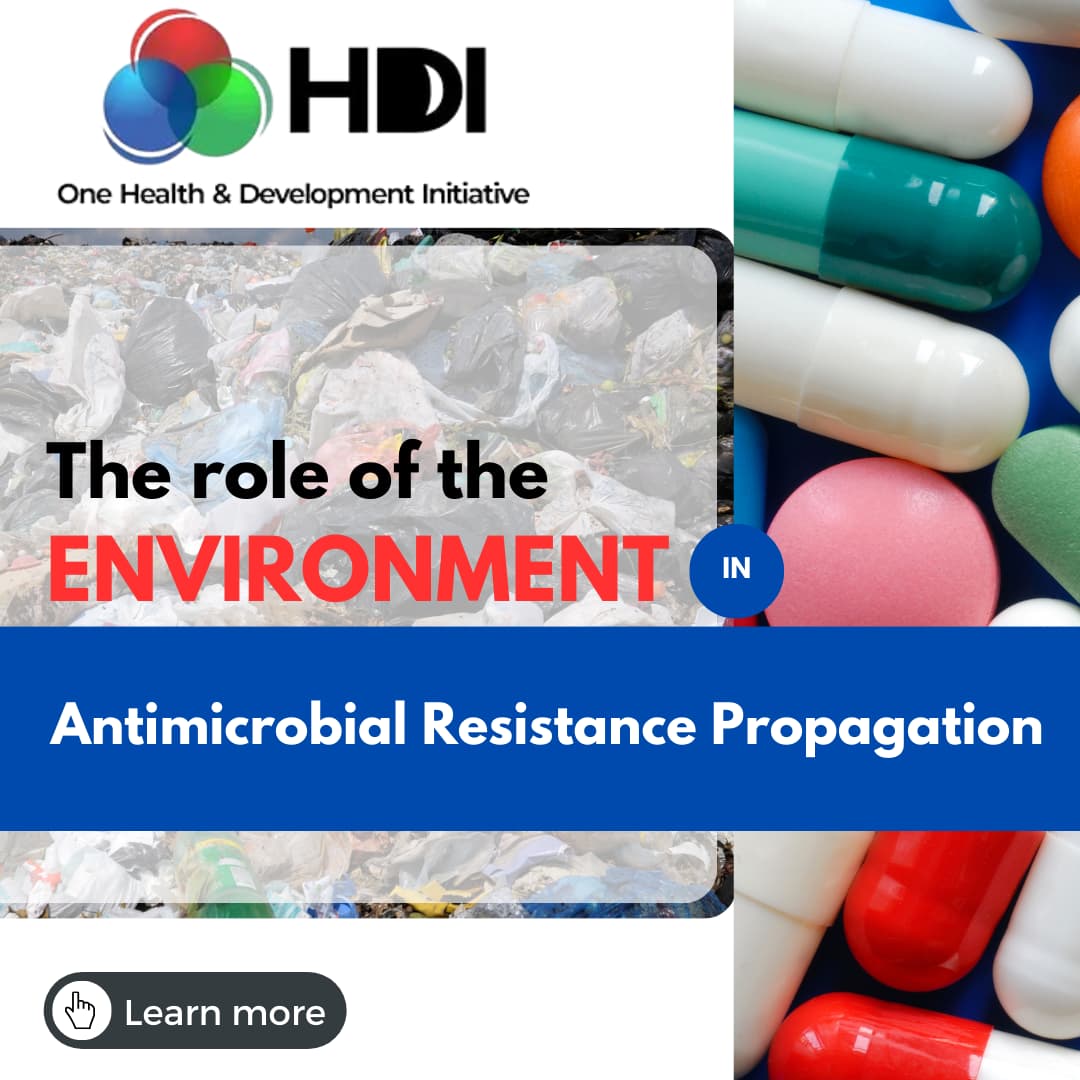
The increasing prevalence of antimicrobial resistance (AMR) is a major threat to human and animal health around the world. The ability of microbes like bacteria, viruses, fungi, and parasites to resist antimicrobials such as antibiotics, antifungals, antivirals and anti-parasitics is referred to as antimicrobial resistance (AMR). Overusing or misusing antimicrobials increases the prevalence of resistant bacteria, viruses, fungi and parasites. These resistant microbes can spread through ecosystems, contaminated soil, water, and air while causing harm to humans, livestock, and wildlife.
According to the World Health Organization (WHO), AMR is responsible for 700,000 fatalities yearly. Without intervention, it will cause 10 million deaths yearly by 2050, with over 600,000 of such deaths occurring in Africa alone at a cost of up to $24 billion. Mortality annually in Nigeria could reach 70,000 people, with an associated cost of up to $2.02 billion.
Transmission of AMR through the environment is one of the least explored areas in AMR. A few key environmental components linked to AMR are identified below as having a substantial impact on the spread of antimicrobial resistance (AMR):
- Antibiotic contamination: Antibiotics in wastewater treatment plants and animal manure can promote antibiotic resistance by providing a selection pressure for environmental antibiotic resistance to emerge.
- Poor hygiene and sanitation: The transmission of AMR bacteria may be aided by sloppy sanitation and hygiene standards in healthcare institutions, factories, and other places where food is prepared. Some research suggests that AMR may increase the release of harmful compounds and contaminants into the environment, which would have a negative impact.
- Climate change: The distribution of resistant bacteria and their hosts may shift as a result of changes in temperature and precipitation patterns, hastening the spread of resistance.
- Natural habitats: Resistant bacteria can colonize soil, water, and other natural habitats, where they can then spread to new ecosystems and organisms. When microorganisms that keep the food chain going die out or resistant bacteria proliferate, the equilibrium of the environment might shift. Ecosystem services including pest control, soil fertility, and biodiversity may suffer as a result of this.
To lessen the environmental impact of AMR, it is vital to employ a multifaceted strategy that targets the root causes of antimicrobial resistance and slows its spread. Some possible approaches are as follows:
- Reducing the use of antibiotics in agriculture: The usage of antibiotics in farming is a major contributor to antimicrobial resistance. Lessening the overuse of antibiotics in livestock and poultry farms through better management practices such as improving animal health and hygiene can decrease the establishment of resistance.
- Promoting environmentally friendly alternatives: Alternatives to antibiotics such as probiotics, phytobiotics, and bacteriophages can be utilized to mitigate the damage caused by antimicrobial resistance (AMR) to ecosystems.
- Enhancing waste management procedures: One of the leading causes of antibiotic-resistant bacteria is the improper disposal of antibiotics and other antimicrobial drugs. Enhanced waste management practices, including the safe and secure disposal of antibiotics, can mitigate some of the environmental impacts of antimicrobial resistance.
- Public awareness and education: By highlighting the impacts of AMR on the environment and the significance of using antibiotics appropriately, public awareness-building and education can assist to slow the evolution of resistance. We can accomplish this through a combination of public awareness campaigns, community outreach programs, and collaborations with medical experts and agricultural stakeholders.
- Funding novel research: Antimicrobial resistance (AMR) has a negative impact on the natural world, but the effectiveness of currently available antibiotics can be preserved and even increased by funding new antibiotic research and development.
- Regulating the use of antibiotics: Antimicrobial resistance (AMR) can be halted and responsible antibiotic usage ensured if antibiotics are regulated by law and international agreements.
In conclusion, protecting public health and ecological integrity requires minimizing the negative effects of AMR on the environment. Antimicrobial resistance (AMR) has emerged as a result of the overuse and improper use of antibiotics, which has resulted in the dissemination of resistant microbes throughout the environment. The cost of inaction on AMR is high, both in terms of human and animal life and environmental health. So it is crucial that we act now to address the issue.





